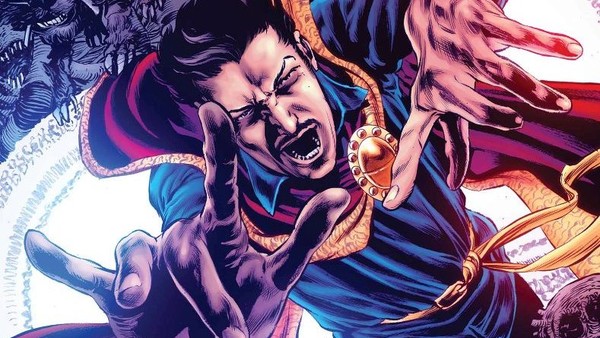5 Bad Habits Superhero Comics Should Break
4. Decompression

The stretching-out of storylines is another sin that really gained steam in the beginning of the new millennium. While both companies had been publishing books with subplots that were carried through multiple issues, each individual issue usually told a standalone story in its own right. But thanks to certain writers, particularly Brian Michael Bendis, focus shifted toward taking a plot that would be told in a single issue and drawing it out over several. This became known as “writing for the trade;” decompressing one story so it could fit nicely into a trade paperback edition that collects five to six issues. Currently, some writers are accused of “writing for the omnibus,” by penning stories that span several years. Guys like Jonathan Hickman, who designed an epic Fantastic Four story that arguably didn’t get fully resolved until years later in the conclusion of his run on New Avengers, and Dan Slott, whose run on Spider-Man has lasted almost a decade, are just a couple of examples.
There are many classic and iconic stories from both Marvel and DC’s past that told great stories without dragging things out. Some are referenced in the current movies and TV shows based on these properties that are being released. For example, “Days of Future Past,” the X-Men storyline that served as the basis for Bryan Singer’s film of the same name lasted for only two issues. “For the Man Who Has Everything,” a Superman single issue story from the 80s was recently adapted as an episode of Supergirl. Plenty of unadapted stories that are considered classics are told in single or limited number of issues that would be much longer if told today. The famous “Spider-Man No More!” story was told in its entirety in Amazing Spider-Man #50; these days it would take months across several titles. The Galactus Trilogy, which involved the possible destruction of Earth, took, as the name implies, three issues to resolve; today it would last at least a year, tie into all of the other major titles, and suffer massive delays that eventually result in the ending being spoiled by the aftermath storylines.
Not every story was told quickly, of course. But while there may have been longer storylines like “The Kree-Skrull War” and “The Great Darkness Saga” that lasted for months, they were few and far between - considered special circumstances, not business as usual. Both of the big two, but Marvel in particular, have an obsession with events. Every story is either dealing with the fallout from the previous event or setting the stage for the next one. Aside from line wide events like Secret Wars or Convergence, there are events occurring within individual titles such as “The Last Days of Magic” in Dr. Strange, “Spider-Verse” and “The Clone Conspiracy” in Spider-Man, “Resurrxion” and “Inhumans vs. X-Men” with the X-Men. It’s no wonder comics are seen as impenetrably difficult to get involved with. It’s impossible to pick up an issue without it being the middle part of a larger whole, even if it’s a #1. But a lot of the blame for this lies with…